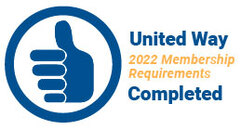|
This is the second set of questions and answers reviewing the information discussed over the course of the year in the This is for you, Chad weekly column. Read the questions, and try to answer before reading. Each of these questions was answered in detail during the past year of This for you Chad articles. Please go to the White County United Way website to access full articles. http://www.whitecountyunitedway.org/lynn
Q9. What is recovery capital? Recovery capital is any resource that supports a person’s recovery. Resources can be physical (basic needs such as food, housing and transportation), human (life and employment skills, and education), social (positive, supportive relationships), and cultural (community attitudes). The more recovery capital available, the more likely an individual will be successful in maintaining recovery. Q10. What are ACEs and how do they affect substance use? Adverse childhood experiences have long term effects on a person’s ability to cope with life. The more ACEs a child experiences, the more likely they will have negative, long-term consequences affecting physical and mental health and life expectancy. Research shows that three or more ACEs is correlated to increased substance use in later life. Preventing ACEs and providing protective factors for children plays a huge role in prevention efforts. Q11. How does substance use affect employers? Seventy-five percent of Indiana employers report that substance abuse impacts the workplace in absenteeism, shortage of workers, negative publicity for the company, decreased productivity, increased insurance costs, accidents, and theft. Research shows that 10% of all Indiana workers have substance use disorder, and an additional 15% have family members who struggle with substance use. Q12. What is stigma and how does it affect those involved in substance abuse? Stigma is judging and discriminating against those with substance use. It is an us-versus-them mentality. According to the US Surgeon General, Dr. Jerome Adams, stigma kills more people in substance use than anything else by keeping them isolated, alone, and out of treatment. Q 13. What is Narcan? Why is it controversial? Narcan is an opioid reversal agent that can save people from overdose. It has been credited with the recent decrease in overdose deaths. Some people object to its use, arguing that those in overdose chose their circumstances and do not deserve our help. Some people find it offensive that Narcan is freely distributed while other life-saving drugs are too expensive for some people to afford. Families of those in substance use say that dead people do not recover and Narcan keeps them alive until they are willing to accept treatment. Q14. What can one person do? Each of us can properly dispose of unused medications to prevent illicit use, talk to our health care providers about possible alternatives to opioid pain killers, support families of those involved with substance use disorder and extend compassion to those struggling with the disease. Share the number for peer recovery coaching. No one should die because they did not know where to turn for help: 765-490-0381. Q15. Who is Chad from “This is for you, Chad”? During my first year of AmeriCorps service, I was given the opportunity to interview inmates at the White County Jail. Many were discouraged by the negative effects of substance misuse on the entire community. One saw the only ray of hope was for people to become more aware of the realities of addiction and drug use. He believed that with more information, people could see the dangers and avoid becoming ensnared. He planted a seed of an idea, and the articles grew to explain the epidemic to the public. This is for you, Chad is a series of articles written in hopes that he is right!
0 Comments
Your comment will be posted after it is approved.
Leave a Reply. |
AuthorLynn Saylor is the AmeriCorps member working with the United Against Opioid Abuse Initiative alongside the White County United Way. She is a major facilitator of the United Council on Opioids serving White County and a regular contributor to local media. Archives
October 2020
Categories
All
|

 RSS Feed
RSS Feed
